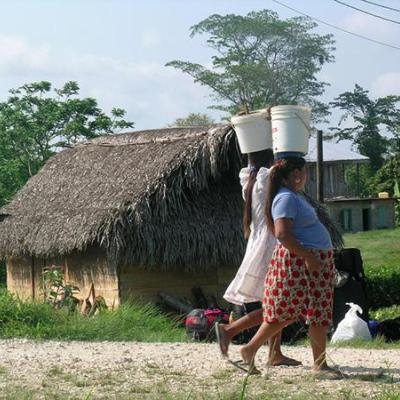
Global Impact Collaboratory
About the Global Impact Collaboratory
The Global Impact Collaboratory brings together leading social scientists with highly experienced development practitioners to transform how we plan for and demonstrate the impacts of development programs on people and their communities. Our goal is to answer two questions: How can we ensure our international development projects are really working? How can we make sure what we learn on projects, about what really works, is widely shared?
We continuously design, test, and share cutting-edge, scientifically robust strategies for monitoring, evaluation, and learning (MEL). Our mission is to ensure development programs have the best possible evidence to create meaningful, measurable change. Lack of sound data that is cost-effective and timely impairs effective design of activities as well as identification of project results.
We focus our efforts on supporting programs that have people at their core, where local behavior and attitude change is needed for success. Such projects are harder to design for success, and trickier to monitor well to show meaningful impact.
We specialize in low resource settings, challenging environments and vulnerable sectors of society, where particularly effective, efficient methods are most needed. This includes communities in low income countries, ethnic and other vulnerable groups like and religious minority groups, women, children, the elderly, people with disabilities, and those faced with other social or economic exclusions.
We seek to enhance the speed of project learning. Monitoring and evaluation should be done in agile ways that allow MEL findings to be quickly and efficiently applied to improve project design in real time.
We are committed to advancing more productive, meaningful engagement between development practice and academia. Academic knowledge enhances program design. But MEL data produced to scientific standards should then also advance academic scholarship. Designing specific projects that do both ultimately drives improved sharing across all international development programs about what works and what doesn’t.
We are committed to providing cutting-edge training in social research methods that can help build both better projects and a better development workforce. Our goal is to train local participants and leave knowledge and skills for these methods in place.
The GIC was initially formed in close collaboration with Chemonics International, and co-developed with Peggy Ochandarena, who created Chemonics International’s Monitoring, Evaluation and Learning department. Peggy is now retired, but her career-long expertise remains part of the GIC DNA.
